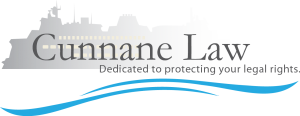Mistakes Many Plaintiffs Make in Personal Injury Cases

Don’t make a painful situation worse. Avoid these mistakes in your personal injury case.
A fact of the law is that every case is unique. Each personal injury case has its advantages and disadvantages. However, some of the shortcomings can be avoided.
At Cunnane Law in Edmonds, WA, we see clients make mistakes all the time and that’s perfectly fine. Nobody can claim to be faultless. However, many blunders may be avoided if people just understand how the law works and the ramifications of their own actions (or lack of action).
We believe that by knowing some of these pitfalls, personal injury claimants will be able to avoid them and strengthen their claims, allowing them to receive the compensation they deserve.
1st Mistake: Making Things Up, Guessing and Lying
Lying, speculating, and making things up (particularly under oath during a discovery investigation on the stand during a trial) are all cardinal sins! A Plaintiff’s credibility and likeability will be entirely ruined as a result of this. Nobody believes a liar or someone who fabricates evidence. If a Plaintiff does not know or cannot recall the answer to a question, all they have to do is declare “I don’t know” or “I don’t remember.” That is all there is to it. It’s fine to say you don’t remember something.
2nd Mistake: Delay in Reporting by a Plaintiff and Inaction are Case Killers
Benefits from the insurance company don’t just fall from the sky. In order for a Plaintiff or Long-Term Disability Benefit to get the compensation which they deserve, they need to take action! The Plaintiff must report the accident to the police, and to their insurance company. See a doctor to record their injuries and follow the treatment plan. Also fill out benefit forms, and contact a personal injury lawyer. If a Plaintiff simply sits in bed or stays at home all day and does not reach out for help; then they will get nothing.
3rd Mistake: Failing to Seek Regular Medical Attention
The Plaintiff has the responsibility of proving his or her claims in a personal injury case. That means the Plaintiff must show that he or she is disabled or injured to the Judge and Jury. It is not enough for a Plaintiff to testify that they have been injured or incapacitated. This is self-serving, uncorroborated evidence that will be dismissed in trial.
A Plaintiff will need specialists, therapists, and treating doctors to state that the Plaintiff is injured in order to have a successful personal injury or long-term disability case. It is extremely beneficial to have a doctor/therapist with no stake in the outcome corroborate a Plaintiff’s pain and suffering. In a personal injury case, demonstrating that a plaintiff is receiving regular medical attention/treatment is also very useful. It helps debunk the insurer’s standard argument that a Plaintiff has failed to reduce his or her damages. It also shows a pattern in which, despite receiving regular treatment, the Plaintiff is still injured and that those injuries/disabilities are affecting his or her life.
4th Mistake: Assuming that the Insurance Company Has Your Best Interests at Heart.
Do not for one moment believe that the insurance company will send a Plaintiff to doctors or service providers who are looking out for his or her best interests. They don’t work that way.
Insurance Medical Examinations are intended to create a paper trail to justify an insurance company’s claim that the Plaintiff/Disability Claimant is not as disabled or as injured as they make themselves out to be.
We Can Help with Your Personal Injury Case
Cunnane Law has extensive experience in personal injury cases for people all over the Puget Sound and Seattle area. To get the help you need, contact us today.
Note: This information was provided not for any specific claim and is written in broad and general terms and may not be the right path to follow for a particular claim or case. This information is not intended to create an attorney client relationship. It is always best to receive direct legal counsel for your legal issues. It is never too early to call the attorney, but it can be too late.

 You Deserve an Advocate
You Deserve an Advocate